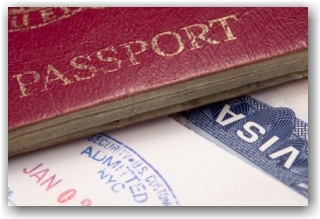#1: The Job Description and Degree Requirement
The job offer and the job description must be for a specialty occupation that requires a minimum of a bachelor’s degree or its foreign equivalent. What is the definition of a specialty occupation? A specialty occupation requires the theoretical and practical application of a body of specialized knowledge along with at least a bachelor’s degree or its equivalent. For example, information technology, architecture, engineering, mathematics, physical sciences, social sciences, medicine and health, education, business specialties, accounting, law, theology, and the arts are specialty occupations.
Small to medium-size companies are being asked to justify why the position requires someone with a bachelor’s degree and to explain, through various types of evidence including organizational charts, classified ads for the position, and educational information pertaining to existing or previous employees in the same position, why their business is more unique than other similar businesses in their industry that they would require a candidate with a bachelor’s degree in a particular position.
Bachelor’s Degree equivalency can be attained through a single-source foreign degree that meets US standards, a combination of a degree and work experience, or a work experience alone equivalency that meets the “3 for 1” rule; namely, that 3 years of work experience to 1 year of university level education (this requires an expert credential evaluation by a service that is authorized to evaluate work experience).
Note: Bear in mind that if you have a skilled immigration professional that has a strategy in place for your green-card sponsorship (permanent residency), it is essential that your degree and its equivalency be carefully reviewed so that it will be compatible with the classification under which you will be filing your PERM labor certification and green-card case.
USCIS now requires very detailed job descriptions that contain the position summary, duties and responsibilities, as well as the percentage of time spent on each job duty. It is hard to imagine that a job description with a 15-bullet point list of duties and a full page in length is insufficient, but when you work with a skilled immigration practitioner, this can be successfully argued against the O*NET and the OOH which is the primary source of job information for USCIS and the Department of Labor.
In summary: Employers need to be prepared with complete job descriptions for their H-1B prospective employees and document the need for a degreed professional thoroughly in their casework and work with an immigration attorney that is well versed in handling H-1Bs as well as PERM labor certifications.
#2: Plan Ahead and File Early
When should I start my case? Immigration Solutions accepts H-1B cap-subject cases well in advance of April 1st to avoid the rush that normally occurs when employers become aware of cap deadlines and when foreign workers obtain job offers that require cap subject visa numbers. Bottom line, cap-subject cases should be started ASAP. We advise employers to assess their hiring needs for FY 2012 and contact their immigration attorney to discuss timing issues.
How long does it take to prepare an H-1B Case? We do not recommend waiting until the last minute because of the various government agencies that are involved in the process. With good front-end case strategy, consulting with an attorney that has a depth of experience with H-1Bs with and a streamlined case process – the many steps involved in preparing an H-1B requiring the cooperation of all parties, can go very smooth and an approvable petition can be filed with all necessary supporting documentation. An approval requires that a case be prepared correctly from the start. It is often not possible to reverse strategy after the case is filed. Planning ahead is crucial to flush out any issues that need to be overcome, particularly when working with IT and healthcare consultants and staffing agencies that have 3rd party jobsite issues.
In summary, the demand for H-1B visas, although not as high in this economy, have tougher documentation standards and Department of Labor delays sometimes for several weeks with employer EIN# verification issues. By understanding the issues involved in the H-1B process, one can take a proactive approach to assure that the needs of all parties are addressed early.
#3: When the Occupation Requires a License
USCIS’ approval of an H-1B petition that requires a license, is not authorization for the employee to practice his or her profession without the required license. This is particularly prevalent when processing H-1Bs for teachers and healthcare professionals. USCIS regulation provides that if an occupation requires a state or local license to fully perform the duties of the occupation, the foreign worker must have the license prior to the approval of the petition.
This can be a Catch 22….Some states will not issue a state license unless the individual worker presents evidence to the State Board that they are legally authorized to be employed in the USA. Some State Boards require the worker to establish to the State Board that they have been granted H-1B status as a prerequisite to issuing the license. For example, certain State Boards of Pharmacy will not issue a pharmacist license until the worker presents evidence of work authorization. Teachers and registered nurses have been unable to obtain licensure until they obtain social security numbers which cannot be achieved until one is authorized to work in the USA.
With the above being said, USCIS adjudicators have been instructed to approve H-1B petitions for a one-year period if a State or local license to engage in the profession is required, and the appropriate licensing authority will not provide such license to the worker without evidence that that they have been granted H-1B status. At the end of the one-year period, the employer is required to file another petition with a request for extension and also present evidence at that time that state licensure has been obtained.
As a condition to approving petitions involving state or local licensure, the worker must demonstrate that they have filed an application for the license according to the State or local rules and procedures, provide evidence that they are qualified to receive the license, and that all educational, training experience and other requirements are met, including healthcare certification, at the time of filing the petition. For instance, Physical Therapists must provide a letter or statement signed by an authorized state physical therapy licensing official in the state of intended employment, indicating that the PT is qualified to take the state’s written licensing examination for physical therapists and thereafter obtain state licensure.
:::::::::::
If you are not a client of our firm and would like to discuss H-1Bs as well as any other immigration matters, we invite you to contact us at info@immigrationsolution.net | telephone 562 612.3996 to set up a consutation.
 If you Previously had an H-1B for Less than 6 Years
If you Previously had an H-1B for Less than 6 Years


